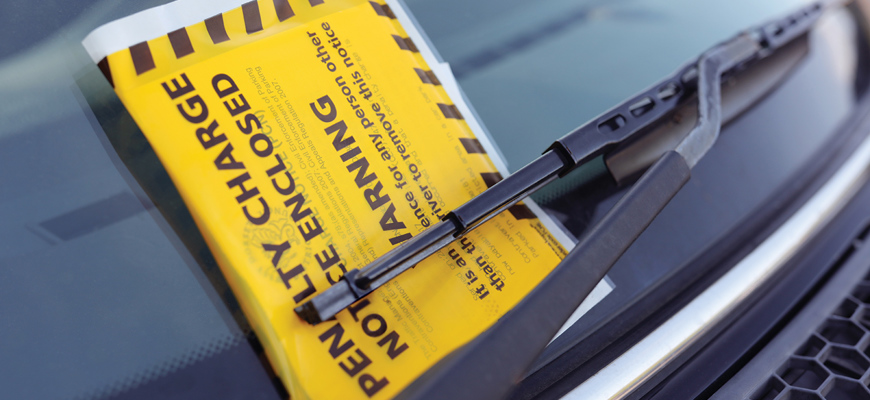Parking: About this ticket…

Every lawyer knows, when you are in the back of a taxi, don’t let on what you do for a living. Sometimes, when you are carrying your gown and heading to court, it can be hard to hide, and if you don’t look busy enough with papers or on your phone, you’ll inevitably be asked legal questions.
“So what do you think of this – I got this parking ticket...”. That one is high on my list of frequently asked questions, and not just when in the back of a cab. I now think of it as a fun question, with the inevitable reply: “It depends”.
The question is usually about a parking charge in a private car park, not a council issued ticket. It is also usually followed up with: “Should I pay it? My [relative] knows about these things and says they can’t do anything in Scotland, and it is just an invoice”, or “My mate has had loads of these and he never pays them. He says you can just ignore it.” That is usually where I inwardly groan.
Enforceable? Yes
So what is the answer? We know by now that the basis of such a parking charge is in contract. When there are signs setting out the nature of the charges, and you still choose to park, you have accepted the terms of the contract. Is such a contract enforceable? Without needing to go too far back to basics, we have fairly recent (and rather punishing) authority in Scotland that private parking charges in Scotland are clearly enforceable.
In Vehicle Control Services v Mackie [2017] SC DUN 24, Ms Mackie regularly parked in a private car park at her parents’ flat in Dundee. The property factors entered into a contract with the pursuers to control parking in the car park, as residents could find themselves unable to park due to the public using it. Residents were required to show a permit and any vehicle not showing a permit would receive a penalty charge notice. There were prominent signs of the restrictions within the car park.
Mackie regularly parked in the car park, and refused to obtain a permit, which her father could have arranged for her. In the property factor’s evidence, Mackie was aware of what she was doing, but believed the parking regime was illegal. She refused a reduced cost parking permit. Quantum was agreed at £24,500.
Sadly for Mackie, she was incorrect in her belief that the parking regime was illegal, and Sheriff Way held there was a valid contract. After being found liable to pay the agreed sum, Mackie was sequestrated some months later.
A path to this decision was led by the pursuers’ reference to Thornton v Shoe Lane Parking [1971] QB 163, and Lord Macphail’s decision in University of Edinburgh v Onifade 2005 SLT 63, which set up the framework for the defender’s acceptance of the pursuers’ conditions of parking. The reasonableness of the size of the charge was tested in the “Parking Eye case” (Parking Eye Ltd v Beavis [2015] UKSC 67), which held charges of £85 to be reasonable.
Some answers
So when I am asked “Should I pay it?”, there are a few useful pieces of advice that can be given. At the top of the list is, was there clear signage? By now, most parking enforcement companies are well aware of their responsibilities to provide clear notices setting out parking terms and charges, but this is always worth checking. There are many reported cases of camera controlled systems making errors, for example where a driver has parked on two occasions in the same car park on the same day – this will come down to what can be proved.
A final important point is to check that the person the ticket was sent to was the driver, and not just the registered keeper if they were not present – they are not likely to have been able to accept the terms of parking. At present the parties will require to prove that a contract was entered into with the driver (or not). However when part 8 of the Transport (Scotland) Act 2019 comes into force, liability will shift from the driver to the registered keeper in certain circumstances.
We all know the stories of people who have received private parking charges and nothing has come of it, but at the end of the day, if the parking enforcement companies wish to pursue an action, the real answer is that if you were the driver, and parked in a private car park with terms shown on clear signage, then yes, the parking charge is an invoice, and it is one you are liable to pay.
As a final addendum, while you could try to contest the charge, parking enforcement companies are notorious for failing to acknowledge correspondence, or simply responding with a further demand for payment (along with increased charges). My advice to clients in all correspondence is to resist the temptation to send screeds of angry invective and remain brief, direct and reasonable.
Perspectives
Features
Briefings
- Civil court: No rule against redaction
- Corporate: Privileged or confidential – who can access
- Intellectual property: Big tech, AI and enforcement
- Succession: Non face-to-face will instructions; form C1
- Agriculture: “Route map” for agricultural reform
- Parking: About this ticket…
- In-house: Caring for the carers







